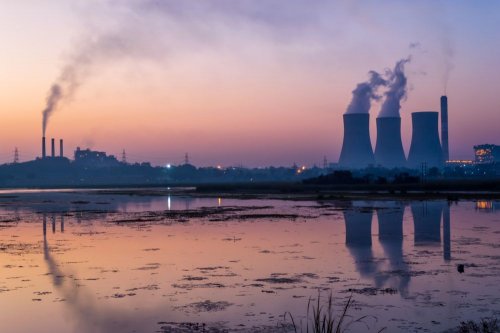Following a public discussion of the draft Strategy for the Implementation of a Greenhouse Gas Emissions Trading System in Ukraine until 2033 and its Operational Plan, experts from the European Business Association (EBA) have formulated the 4 most important conditions for effective climate policy in Ukraine.
The experts have posted their proposals on the EBA website.
Here are their recommendations for the government.
First, not to hurry with the introduction of the ETS and to ensure a regular dialogue with business on the parameters of the launch and operation of the future emissions trading system (ETS).
Experts believe that careful planning and consideration of all aspects is necessary, as the submission of data on actual CO2 emissions by enterprises, which is the basis for building the ETS and its key elements, has been suspended due to the war. Mandatory reporting is expected to resume only in 2025-2026. Therefore, the government's proposed launch of the pilot phase in 2026 is not realistic.
The experts reminded that in order to qualitatively determine such parameters of ETS as distribution of quotas, setting the upper limit of emissions, it is necessary to have data on emissions from enterprises for at least 3 years.
They also noted that ETS should be economically beneficial for business to encourage it to reduce emissions.
Second, avoid duplicating payments for emissions, because the introduction of ETS will not exempt Ukrainian producers exporting products to the EU from the need to pay CBAM. This will naturally lead to a significant increase in the cost of all products.
Experts are sure that CBAM should be considered separately from ETS. They expressed the opinion that attempts to implement ETS before the start of the financial obligations of the CBAM in 2026 could lead to the collapse of preparation for both CBAM and ETS, given the limited resources of government agencies and businesses.
The EBA experts insist that Ukraine should seek the application of the CBAM to Ukrainian goods on a declarative basis (without payment of taxes), taking into account the damage caused by the war.
"The introduction of ETS will lead to significant challenges for the further recovery of the economy not only due to an increase in the financial burden on product manufacturers, but also due to an increase in the cost of electricity, cement, steel and a number of other groups of products that are critically important during the war and recovery", – warned business representatives .
Third, to contribute to the application of the CBAM to Ukraine on a declarative basis.
Experts drew the government's attention to the fact that the current CBAM regulation allows the EU to take into account exceptional and unprovoked events that have caused devastating consequences for the economy and industrial infrastructure of a country that exports goods covered by the CBAM to the EU. In effect, this will be the same approach as for the rest of the countries, but without the emission charge.
In this way, it is possible to reduce the financial burden on business and help enterprises to accumulate resources to partially restore the level of production affected as a result of military operations.
The experts also called for the development of a new organizational mechanism for negotiations with the European Commission, because the current Working Group, which was created by the government in 2021, has not yet developed a consolidated position of the Ukrainian side regarding the approach to the application of the CBAM.
Fourthly, The Ministry of Economy should start the development of the Ukrainian CBAM mechanism for importing products from third countries.
Experts note that such a mechanism will contribute to the protection of national producers and provide equal conditions for all market participants in Ukraine – both producers and importers. It will speed up and simplify the process of integration of the Ukrainian market into the EU market after Ukraine acquires the status of an EU member state.
"Since an eco-tax on CO2 emissions is already in effect in Ukraine, the introduction of the above-described mechanism should be implemented as soon as possible, in particular before the introduction of the STT and before the potential acquisition of EU membership by Ukraine, taking into account the expected duration of these processes," the EBA noted.
Business representatives emphasized that they conceptually support the government's significant steps in the development of climate regulation, but at the same time warned that without taking into account the 4 listed key conditions, they will be ineffective or will remain only on paper.
Earlier, EcoPolitic reported on the EBA's warning that in the current environment, the financial burden of CBAM would be excessive for the Ukrainian economy.
EcoPolitics also published a forecast from the EBA, according to which Ukraine will need 10 years to create a market for trading emissions quotas.





